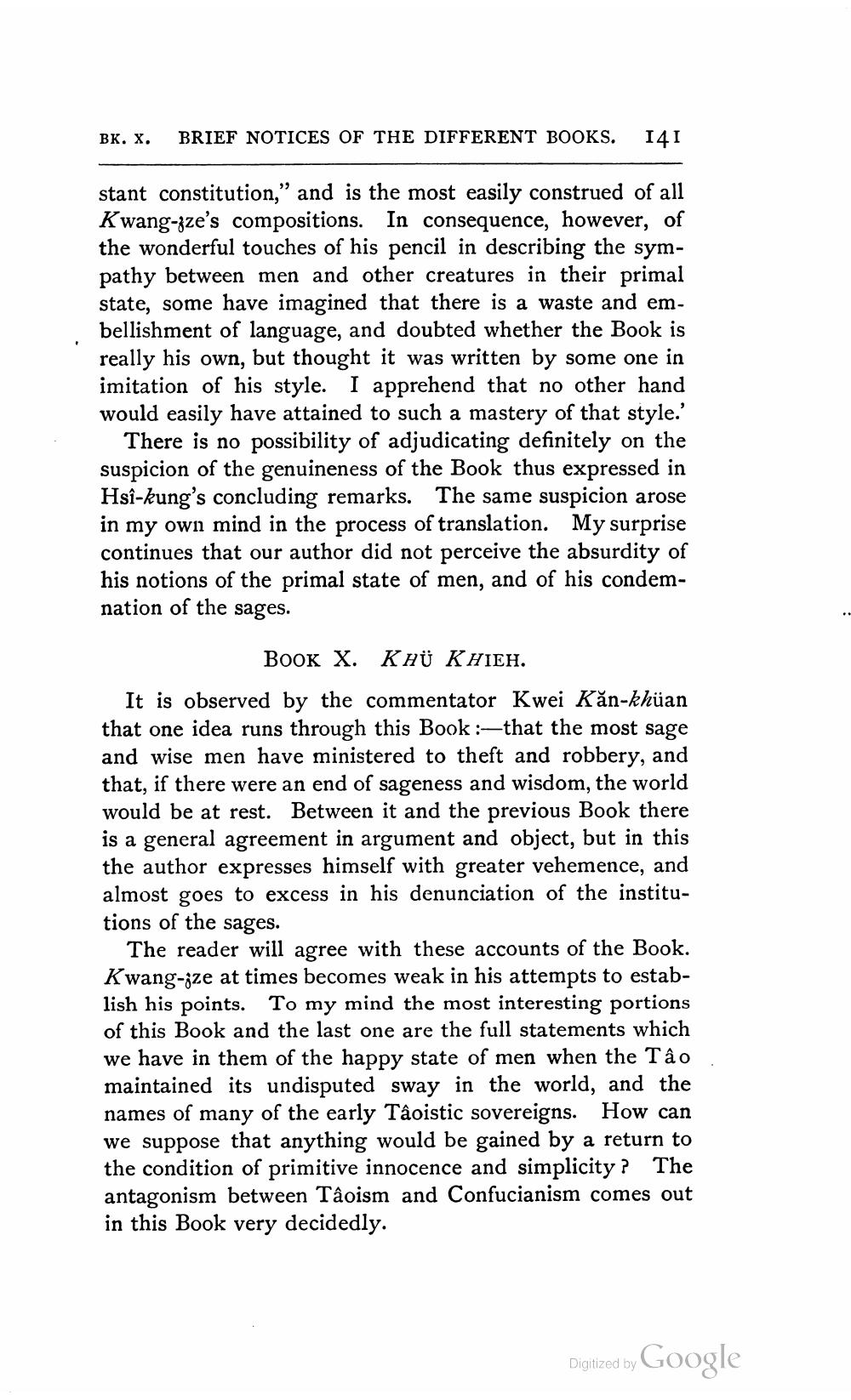________________
BK. X. BRIEF NOTICES OF THE DIFFERENT BOOKS.
141
stant constitution," and is the most easily construed of all Kwang-zze's compositions. In consequence, however, of the wonderful touches of his pencil in describing the sympathy between men and other creatures in their primal state, some have imagined that there is a waste and embellishment of language, and doubted whether the Book is really his own, but thought it was written by some one in imitation of his style. I apprehend that no other hand would easily have attained to such a mastery of that style.'
There is no possibility of adjudicating definitely on the suspicion of the genuineness of the Book thus expressed in Hsî-kung's concluding remarks. The same suspicion arose in my own mind in the process of translation. My surprise continues that our author did not perceive the absurdity of his notions of the primal state of men, and of his condemnation of the sages.
Book X. Khü KHEH. It is observed by the commentator Kwei Kăn-khüan that one idea runs through this Book :--that the most sage and wise men have ministered to theft and robbery, and that, if there were an end of sageness and wisdom, the world would be at rest. Between it and the previous Book there is a general agreement in argument and object, but in this the author expresses himself with greater vehemence, and almost goes to excess in his denunciation of the institutions of the sages.
The reader will agree with these accounts of the Book. Kwang-ize at times becomes weak in his attempts to establish his points. To my mind the most interesting portions of this Book and the last one are the full statements which we have in them of the happy state of men when the Tâo maintained its undisputed sway in the world, and the names of many of the early Tâoistic sovereigns. How can we suppose that anything would be gained by a return to the condition of primitive innocence and simplicity? The antagonism between Taoism and Confucianism comes out in this Book very decidedly.
Digitized by Google




